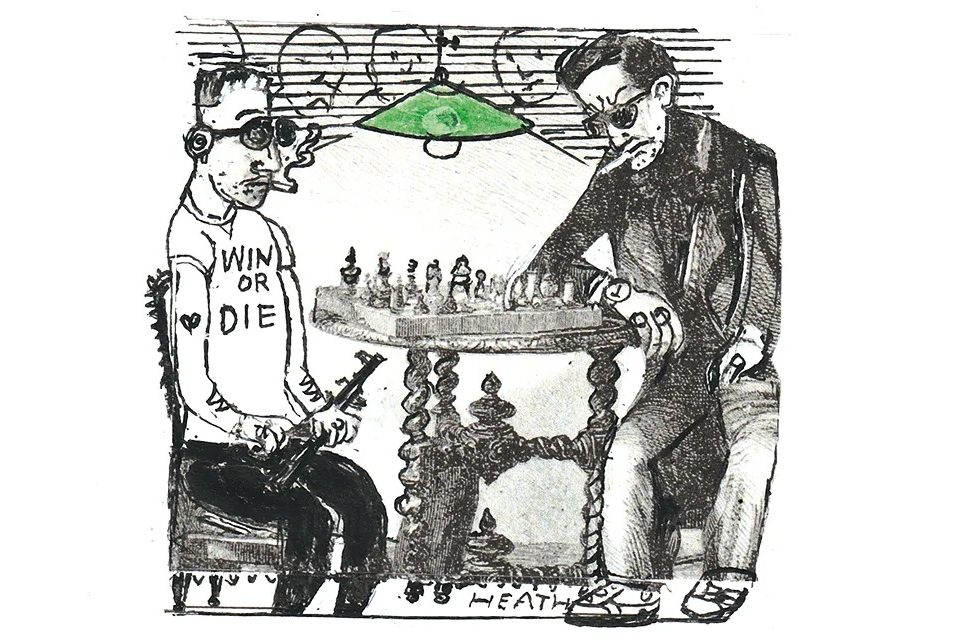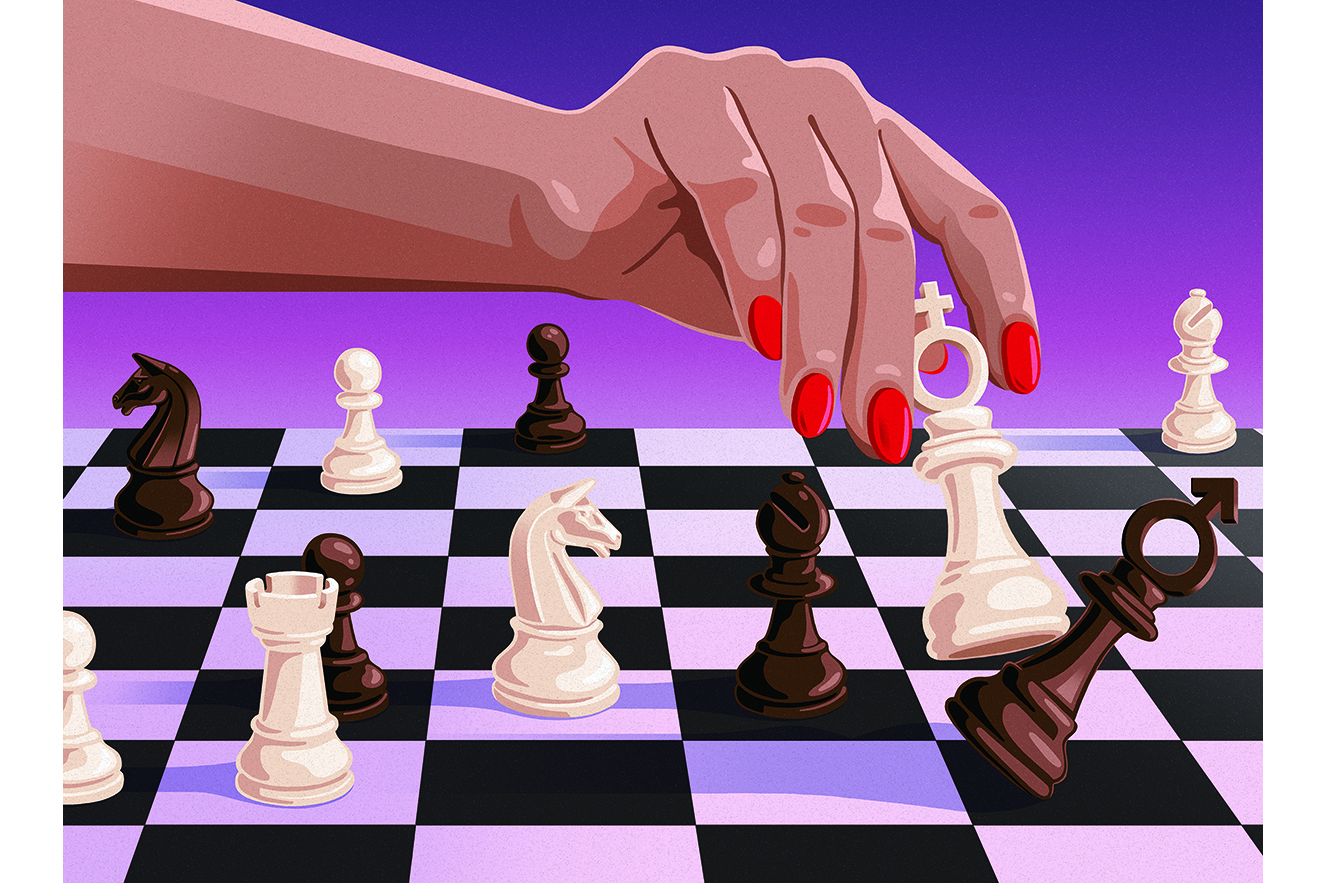Amina Abakarova, a forty-year-old chess player from Russia, supposedly tried to poison a younger rival at the Dagestan Chess Championship this month. Camera footage seems to show her furtively applying a substance to one side of a chess board before the start of the game. Her opponent later became unwell and a Russian news agency claimed that the substance contained mercury.
I first saw the story on one of the many specialist chess news sites. Within forty-eight hours it was in most national newspapers. Two types of chess stories pop up time and again. First, the ones about child prodigies, which tend towards the formulaic — I know because they used to publish them about me in the 1990s.
History records quite a few players who gave in to murderous urges after a game gone awry
The other category — let’s call it “nerds behaving badly” — is gloriously diverse. Chess players are human beings, after all, and have found ways to be unruly ever since the first board games were etched on stone tablets. These stories are far more interesting because part of the game’s charm lies in its troupe of eccentrics and monomaniacs.
The poisoning story is a rarity, in that it involves the physical harm of a competitor. Animosity can be intense, and considering some players’ competitiveness, it’s remarkable that things don’t become inflamed more often. For players who may be engrossed in a game for five or six hours, in which a single mistake can be fatal, the ego feels very much at stake. Euphoria and misery are all-consuming emotions. It’s a thrill, but one where thankfully few people get hurt.
There are exceptions, of course. One morsel of chess gossip which got the full news treatment was a punch-up at the 2006 Turin Olympiad in which, regrettably, an English grandmaster lunged at Armenia’s top player at a party organized by the Bermudans. That was fisticuffs over a woman, and had nothing to do with chess.
History records quite a few players who gave in to murderous urges after a game gone awry, but most tended to be casual players. King Canute is said to have had his brother-in-law Earl Ulfnadson killed after a chessboard altercation in 1028. The earl, who had saved the king on a real battlefield, executed a powerful move on the board as well. Canute suggested he might like to select a different move. The earl demurred and was bumped off the next day for his insolence.
The biggest scandal of recent years was the Hans Niemann supernova, which exploded in 2022, and whose after-effects are with us today. Magnus Carlsen, then world champion, lost a tournament game against Niemann, but suspected foul play and withdrew from the event in protest. Niemann brought a $100 million defamation lawsuit against Carlsen and other parties. There was a settlement, but ill will remains.
Carlsen did not substantiate his original allegations, but one wag suggested (utterly implausibly) that vibrating anal beads could be used to transmit vectors for chess moves.
The reality of chess cheating is rather more mundane. In 2019, the world gawped at an unedifying photo of the Latvian grandmaster Igors Rausis, mid-game and fully clothed, staring intently at his smartphone in a Strasbourg lavatory cubicle. You might say that he was caught with his pants up.
Accusations of sexism are another way in which chess players become the subject of embarrassment. Women are a minority in the world of competitive chess, and not all the men are known for their gallantry.
In an interview with Harper’s magazine in 1962, Bobby Fischer described women as weak players, and said that he could give knight-odds (a handicap where you start the game with only one knight) to any of them. The Netflix series The Queen’s Gambit, set in the same era, made great play out of the fictional Beth Harmon upsetting the boys’ hegemony.
Much has improved since those days, but once in a while you can count on some prominent player expressing the same clumsy sentiment and ending up in the stocks.
A more sinister turn came with the Latvian master Andrejs Strebkovs, who supposedly sent dozens of female players obscene letters containing pornography and even used condoms. Bizarrely, it seems those actions did not constitute a criminal offense in Latvia, though Strebkovs was sanctioned by Fide, the chess international governing body, earlier this month.
Chess is sometimes also co-opted to imply or confirm sinister tendencies. Lee Harvey Oswald? Played chess. Ian Brady? Played chess. Last year a man named Robin Moss, who committed tax fraud, was sentenced to ten years in prison. Reporters were keen to draw attention to the fact that he was a chess player. (As it happens, he was actually quite good.) They never seem to write “he played the guitar” or “he liked a bit of five-a-side.” Nothing says you’re a criminal mastermind like knowing the King’s Indian Attack.
This article was originally published in The Spectator’s UK magazine. Subscribe to the World edition here.

























